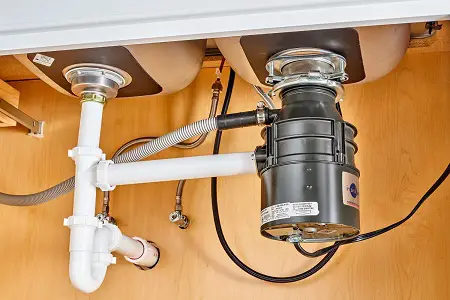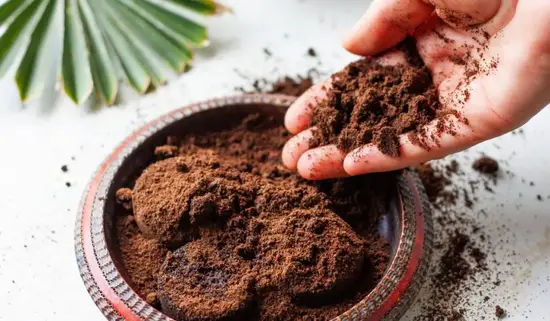If you enjoy coffee, you’re probably accustomed to the daily ritual of preparing a fresh pot. And if you drink coffee as many people do, you might be wondering what to do with the used coffee grounds. Can you put them in the toilet to flush? We’ll look into the answer to that question in this blog post.
Let’s first think about why someone would ever want to flush coffee grounds down the toilet. Maybe you’re in a rush and don’t have time to properly dispose of the grounds. Or perhaps you’re just trying to find a simple, quick solution to get rid of them. Despite the motivation, it’s critical to recognize that dumping coffee grinds down the toilet could have negative effects.
Coffee grounds disposal
The coffee grinds should never be flushed down the toilet since they can block your plumbing system. Coffee grinds can amass and cause blockages in your pipes since they do not dissolve in water. These obstructions can eventually cause backups and even burst pipes, which can be expensive to fix.
Coffee grounds flushing can damage the environment in addition to generating plumbing issues. Coffee grounds can block the treatment process and harm equipment since sewage treatment plants are not made to manage them. If they get into the wastewater system, they can also cause equipment damage. The expense of sewage treatment may increase as a result, and local wildlife and rivers may suffer as a result.
Why not dispose of your coffee grounds in a different way than by flushing them down the toilet? Here are several possibilities:
Composter them. Your compost pile will benefit from the addition of coffee grounds. They contain a lot of nitrogen, which helps to feed your plants and soil. To ensure that your compost is properly balanced, mix them in with other biodegradable items like leaves and grass clippings.
Put them to use as fertilizer. You may use coffee grounds as a natural fertilizer by scattering them about your plants. Coffee grinds’ acidity can aid in lowering the pH of your soil, which is advantageous for some plants. Avoid going overboard, though, as some plants can suffer from too much acidity.
How to use coffee grounds as fertilizer
Since they contain such high levels of nitrogen, potassium, and other nutrients, coffee grounds make a great fertilizer for plants. The following advice will help you use coffee grounds as fertilizer:
Composting
Adding coffee grounds to your compost pile is one of the simplest methods to use them as fertilizer. Combine the ground coffee with leftover vegetables, grass clippings, and other organic ingredients. The combination will decompose into rich compost over time, which you can then add to your plant beds.
Applying coffee grounds directly to the soil surrounding plants is another option. Just scatter the coffee grinds around the plant’s base and incorporate them into the soil with a garden fork. Use just a thin covering of coffee grounds since too much can form a barrier that keeps water and air from getting to the roots of the plants.
Making a liquid fertilizer from used coffee grounds is an additional choice. Let the mixture to steep for a few days after mixing the grounds with water in a 5:1 ratio (5 parts water to 1 part coffee grounds). After removing the grounds, use the remaining liquid to water your plants.
Worm castings
To make worm castings that are rich in nutrients, coffee grinds can also be put in a worm composting bin. The coffee grounds and other organic materials will be broken down by the worms, producing a potent fertilizer that can be applied to plants.
coffee grinds are an excellent natural fertilizer that can assist to enhance the quality of the soil and encourage the growth of healthy plants. Coffee grinds can be easily incorporated into your gardening practice through composting, direct application, producing liquid fertilizer, or using worm castings.
Put them in the garbage
Even while composting and using coffee grounds as fertilizer are excellent solutions, there are occasions when you need to get rid of them right away. In this instance, it would be preferable to dispose of them in the garbage as opposed to flushing them down the toilet.
It’s important to note that some cities and towns have precise guidelines for how coffee grounds must be disposed of. To learn how to properly dispose of them in your area, make sure to contact your local waste management office.
There are a few additional steps you may take in addition to the ones mentioned above to avoid plumbing issues brought on by coffee grounds. To begin with, take care not to dump a lot of coffee grounds down the sink drain. Scrape them into the garbage or compost them as an alternative. To collect any minuscule amounts of grinds that might fall into your sink or drain, you can also use a tiny mesh strainer.
Don’t use chemicals or equipment like drain snakes to attempt to unclog your plumbing system on your own if you do suffer a clog. Indeed, using these techniques might exacerbate the issue and severely harm your pipes. Call a qualified plumber instead who can unclog the pipe securely and efficiently.
Disposing coffee grounds
How to dispose of Coffee grounds
Instead of being thrown away in the trash, coffee grounds are a frequent waste product that can be used in a variety of other ways. Here are a few environmentally friendly ways to get rid of coffee grounds:
Coffee grinds are an excellent addition to compost because of their high nitrogen content and other helpful nutrients. Coffee grounds should be combined with other compostable materials, such as eggshells, yard debris, and leftover fruit and vegetables. Compost made as a result can be applied to plants as a natural fertilizer.
Coffee grounds can be used directly as a fertilizer for plants. To include them, you scatter them on the ground close to the plants and use a garden fork. The soil will get healthier overall as a result of the grounds’ delayed release of nutrients.
Spent coffee grounds can be utilized as a natural deodorizer for the fridge, a closet, or any other space that has a bad smell. Place the grounds in a little container with holes on top, then leave it in the vicinity. The smells will be absorbed by the grounds, leaving a clean scent behind.
Cleaning
You can use coffee grounds as a mildly abrasive cleaning for pots and pans. The abrasive texture of the coffee helps to scrub away tough stains without damaging the surface. Scrub away with a little soap and coffee grounds combined.
Additionally effective as a natural bug repellant are coffee grinds. To deter pests like slugs and snails, sprinkle some dirt at the base of the plants.
Coffee grounds in garbage disposal

Coffee grounds can benefit your compost or garden, but it’s generally not a good idea to put them in your garbage disposal. This is why:
Clogs: Over time, coffee grounds can build up in your drain and produce jams. They can combine with water to create a thick, gooey mass that clogs your plumbing.
Odors: Coffee grounds can leave a potent, offensive smell in your kitchen sink and garbage disposal. This may be particularly the case if you don’t frequently use your waste disposal.
Maintenance: Running coffee grounds through the garbage disposal might make it more difficult to keep the drains free. It can be required to regularly clean and flush with water to stop buildup.
It is recommended to dispose of coffee grounds in the trash or in the compost instead of running them through your waste disposal. If you do want to put coffee grounds in your garbage disposal, make sure to run cold water first and then hot water afterward to assist prevent accumulation. Always refer to the manual that came with your garbage disposal for detailed instructions on what you may and cannot throw down the disposal.
Can You Flush Spoiled Milk Down The Toilet
Flushing coffee grounds
Never dump or pour used coffee grinds down the toilet or into a sink. They build up in the drain and frequently cause obstructions. Keeping coffee grounds out of your pipes is crucial if you have a septic tank since they can also cause serious septic system issues.
Can You Flush Coffee Grounds Down the Toilet?
No, you should not flush coffee grounds down the toilet. It is not recommended to flush coffee grounds down the toilet. Coffee grounds do not dissolve easily in water and can accumulate in pipes, potentially causing blockages or clogs in your plumbing system.
In addition to causing plumbing problems, flushing coffee grounds down the toilet can also harm the environment. When flushed, the coffee grounds can end up in waterways and harm aquatic life or contribute to the buildup of sediment in pipes.
To properly dispose of coffee grounds, it is best to throw them in the trash or use them for composting. Composting coffee grounds is an eco-friendly option that can help improve the quality of your soil.
Why shouldn’t you flush coffee grounds down the toilet?
Coffee grounds do not dissolve in water and can clog pipes, leading to expensive plumbing repairs.
They accumulate in the drain and can cause obstructions. Keeping coffee grounds out of your pipes is crucial if you have a septic tank since they may also seriously damage septic systems.
Can coffee grounds damage septic systems if flushed down the toilet?
Yes, coffee grounds can damage septic systems if flushed down the toilet. They can accumulate and create blockages that can lead to system failure.
What should you do with coffee grounds instead of flushing them down the toilet?
You can dispose of coffee grounds in the trash or compost them. They can also be used for gardening or as a natural deodorizer in the fridge.
Is it safe to pour coffee down the toilet?
In small amounts, pouring coffee down the toilet is generally safe. However, it is not recommended to do so regularly or in large amounts, as it can still cause plumbing problems over time.
What other items should you avoid flushing down the toilet?
Other items you should avoid flushing down the toilet include feminine hygiene products, wipes (even if labeled as “flushable”), dental floss, paper towels, and medications.
What are the consequences of flushing non-flushable items down the toilet?
Is it safe to flush toilet paper down the toilet?
Yes, it is generally safe to flush toilet paper down the toilet. However, it is important to use only toilet paper that is designed to be flushed, as other types of paper can cause clogs.
What is the best way to dispose of cooking oil and grease?
Cooking oil and grease should not be poured down the drain or flushed down the toilet. Instead, they can be collected in a container and disposed of in the trash, or recycled at a local facility that accepts used cooking oil.
How can you prevent plumbing problems related to flushing non-flushable items?
To prevent plumbing problems related to flushing non-flushable items, it is important to only flush toilet paper and human waste down the toilet. Other items should be disposed of in the trash or recycling. Additionally, it is a good idea to have your plumbing inspected and maintained regularly by a professional plumber.
Conclusion
Despite the convenience of flushing your coffee grounds down the toilet, it is not worth the chance of plumbing issues and environmental harm. As an alternative, compost them, use them as fertilizer, or discard them. You may enjoy your coffee while helping to save the environment by taking these easy measures.

